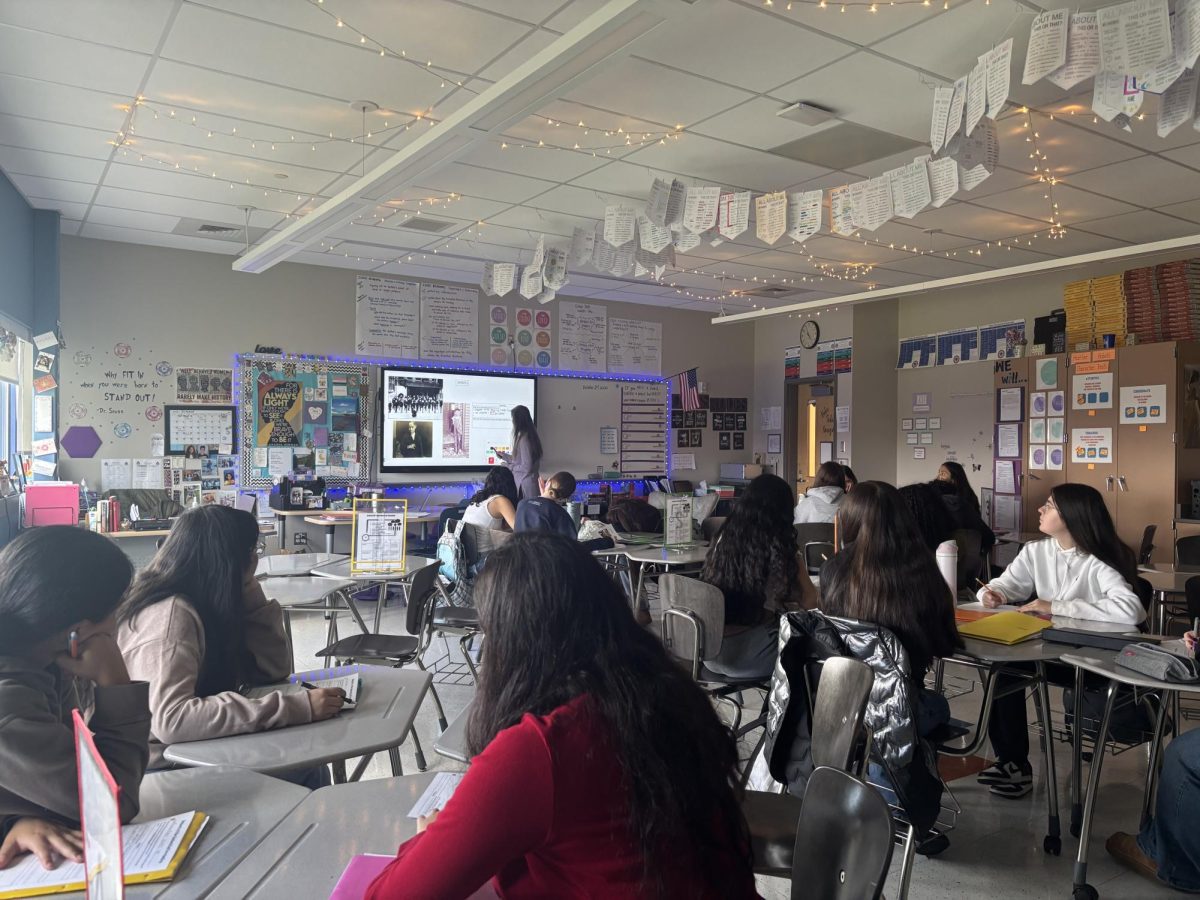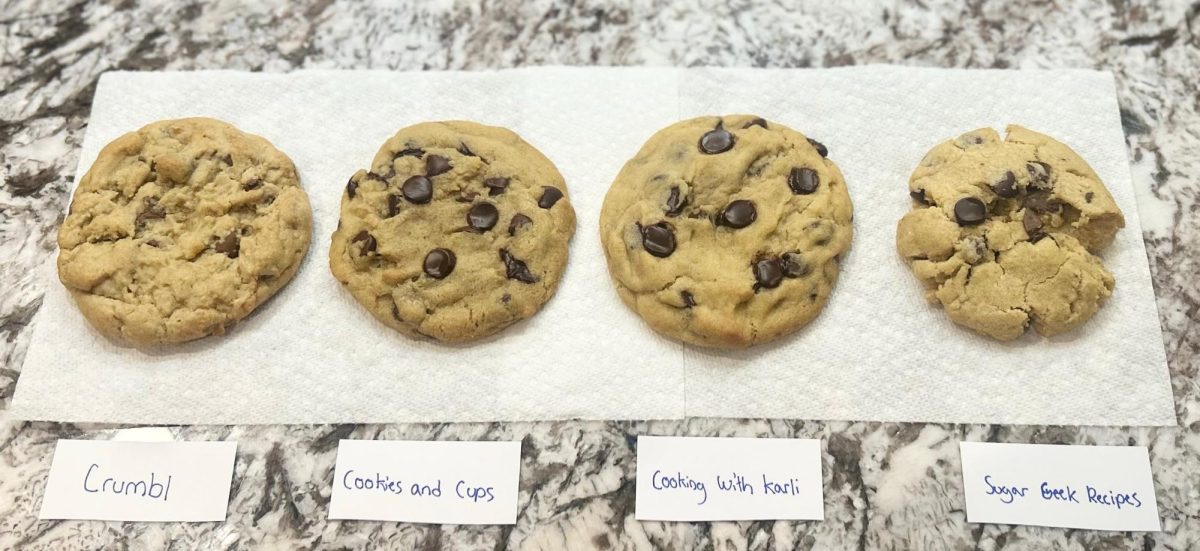As the new semester kicks off, many students at Danbury High School find themselves reflecting on their academic performance. Whether they are looking to bounce back from a rough first semester or maintain their momentum, guidance counselor Lindsay Cavanaugh, English teacher Emma Gentile, and students themselves offer valuable insights on how students can set themselves up for a fresh start.
A Fresh Start and Goal-Setting
According to Cavanaugh, semester two is a chance to reset and refocus. For students who struggled in the first semester, she advises adopting a growth mindset- acknowledging past challenges but moving forward with a plan. “The second semester is an opportunity to improve. It’s not about dwelling on past mistakes but learning from them and doing better,” she explains.
Goal-setting varies for every student. Some aim for high grades, while others focus on simply passing. Regardless of the goal, Ms. Cavanaugh encourages students to set realistic expectations and stay on top of their work.
Time Management and Study Habits
Beyond just setting goals, effective time management is essential for success. Cavanaugh suggests treating school like a job: “From 7:20 am to 2:00 pm, make sure you’re focused on your work. Then, from 2:30 to 7:00 pm, fit in activities and homework.” She, along with many other teachers, also recommends using planners, setting reminders, and taking advantage of flex periods to stay organized.
She emphasizes the importance of consistency in studying rather than cramming at the last minute. “Students should focus on breaking their workload into smaller, manageable chunks instead of trying to tackle everything the night before a big test.”
This resonates with Isaac Martinez, a sophomore at DHS, who has adopted a proactive approach to his coursework. “I [hardly] procrastinate. Any homework I get, I try to complete by the time class is done. That way, I don’t have extra work to do at home when I could’ve finished it earlier,” he explains. Martinez first gains a general understanding of a topic and then builds upon it over time. Reviewing material regularly rather than cramming at the last minute can reduce stress and improve retention.
Gentile echoes this sentiment, stressing the importance of reading and participating in class discussions. “Students who read outside of school and analyze class readings tend to do better,” she notes. She encourages students to engage in conversations, take notes, and ask questions to avoid writer’s block and strengthen their understanding.
Olga Carcamo, a chemistry teacher at DHS, emphasizes the importance of self-discipline and structured study sessions. According to Carcamo,“Students need to develop a study routine that works for them, whether it’s rewriting notes, [using flashcards,] or practicing problems.” This approach aligns with the habits of Rhylie Stravidis, another DHS sophomore, who finds that creating visually appealing notes and quizzing herself or having a friend quiz her helps her retain information. “I only focus on the topics I find difficult,” she says, as writing everything down makes her feel overwhelmed. Many students, including Stravidis, use digital planners and reminder apps to track assignments and stay on top of deadlines.
Avoiding the Mid-Semester Slump
In addition to structuring study sessions, teachers encourage students to find motivation in their academic journey to avoid mid-semester slumps.
Cavanaugh suggests shifting perspective. Instead of thinking, “There are six more months of school left,” focus on “Spring is coming, the year is moving forward, and I can push through.” Keeping an optimistic mindset can make a big difference in motivation.
Martinez is driven by his long-term goal of becoming a neurosurgeon, and he structures his schedule around that ambition. Similarly, Jake Lliguicota, another sophomore at DHS, has learned to pace himself when it comes to long-term assignments. “For monthly projects, I keep reminders on my phone and set small goals for myself. Once I reach a goal, I complete a smaller assignment as a break,” he shares. However, he admits that procrastination is a challenge for him, so he actively works on managing his time to stay on track. Despite occasional struggles, Lliguicota remains motivated by his desire to succeed academically and pursue a career in psychiatry.
Beyond studying techniques, setting a productive environment is key to academic success. Lliguicota has designated areas in his room for studying, relaxing, and unwinding. Similarly, Stravidis prioritizes maintaining a balance between school, extracurriculars, and personal time. “I concentrate on school when I’m at school, but at home, I make sure to also focus on my personal life. Prioritizing yourself and what you need is vital,” she explains.
Class Engagement and Participation
All educators stress that participation plays a vital role in academic success. Gentile notes that class engagement is improving post-pandemic but still varies by class. “I’ve noticed that quieter classes tend to have lower averages,” she says. “Even if you’re unsure, asking questions and contributing to discussions can help everyone learn.”
Cavanaugh also highlights the importance of seeking help when needed. DHS offers after-school tutoring on Mondays and Wednesdays, and she encourages students to utilize teachers, classmates, and online resources. “Even if you’re a procrastinator, try to complete work as early as possible,” she advises.
Balancing Extracurriculars and Academics
For students juggling extracurriculars, both Cavanaugh and Gentile recommend finding a balance. “If you have too much [on your plate,] it might be time to drop something,” Gentile says. She shares that busier schedules often lead to increased productivity but warns against burnout.
Ultimately, success in semester two comes down to effort and mindset. “High school isn’t as bad as people make it seem if you just try,” Cavanaugh reminds students. “Stay on top of assignments, communicate with teachers, and enjoy high school while it lasts.”
Nearly everyone agrees that academic success is not just about working harder, but also working smarter. As Lliguicota wisely puts it, “It’s better to be consistent than to burn yourself out. Set goals that are realistic and take care of your [mental health].” By implementing these strategies, students can make the most of the second semester and finish the school year strongly, without becoming overwhelmed.























Jacinto Zhunio • Feb 12, 2025 at 8:01 pm
Congratulations Gabriela, awesome article.